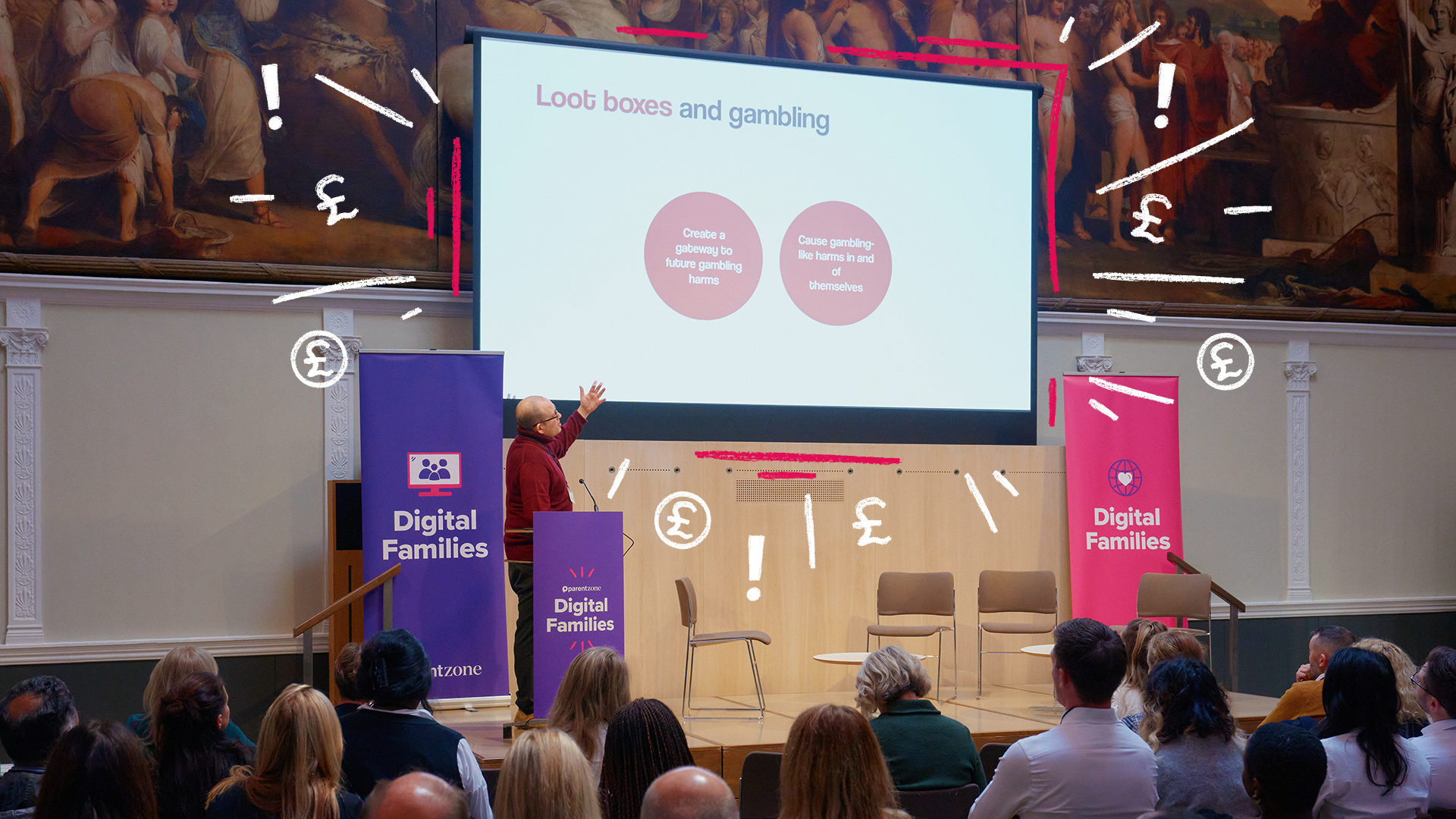What we learned about financial harms at Digital Families 2022
Whether it was the Digital Poverty Alliance’s Paul Finnis detailing digital exclusion, or clinical psychologist Dr Elly Hanson unpacking the economic motives of the porn industry – the topic of finance cropped up repeatedly during our Digital Families conference.
The subject was also extensively covered by Dr David Zendle – a leading researcher in gaming-related financial harms, and also a contributor to our Tech Shock podcast – too.
Games are sales platforms, not products
Dr Zendle offered us a fascinating history of video game monetisation, and the tactics the industry has developed to encourage purchases that extend well beyond the initial buying of a title.
As he went on to explain, the industry has shifted from boxed and complete products, available for a set, one-off fee into the domain of games as platforms: incomplete products which never really end thanks to additional (purchasable) content.
Many games, Dr Zendle continued, are free to download initially, but rapidly incentivise players to spend – usually in the form of microtransactions – in order to progress further, avoid repetitive tasks, or to attain unique cosmetic customisations.
A rehearsal for gambling
This doesn’t just result in things like coercion and excessive spending; it can also lead to problematic behaviours in both present and future. And this is particularly true when it comes to loot boxes.
These are purchasable items with randomised contents, and, as Dr Zendle’s research found, feature in a staggering 77% of mobile and desktop games in 2021 – a 22% increase from 2019. Likewise, research has shown that loot boxes actively encourage behaviours like loss chasing, acting as a rehearsal for gambling later in life.
It’s worrying, Dr Zendle stressed, that not only are most of these titles advertised with low age ratings – a massive 90% of games with loot boxes are available to under 12s – their descriptions also make no reference to their monetised elements. As a result, how can parents possibly make informed decisions about what their children play?
During his talk Dr Zendle also highlighted the prevalence of casino ‘games’ – easily accessible slot machine and roulette simulators – on the streaming site Twitch, a platform incredibly popular among young gamers. Amazingly, these titles aren’t legally recognised as gambling because, although individuals can spend vast amounts in them, they can’t actually take funds out.

